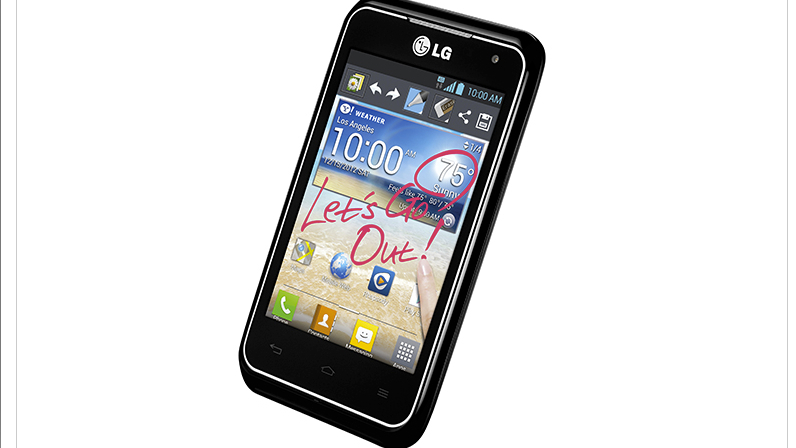TechRadar Verdict
Pros
- +
Budget handset with Android: 4.0 ICS
- +
Everything moves at a decent rate
- +
Removable carrier supplied apps
- +
Impressive speeds despite some MetroPCS hiccups
Cons
- -
Unnecessary UI overlay for ICS
- -
Redundant bloatware
- -
Poor camera hardware
- -
Voice quality is disappointing
Why you can trust TechRadar
One of the primary reasons why Android has managed to take such a massive chunk of the mobile marketplace is the wide range of smartphones it's available on. These devices can be categorized by how much one is willing to splurge on a device.
Naturally, the more you pay, the more you get. That's why the majority of budget Android handsets are released with yesterday's operating system. This basic fact of Android life has increasingly become a point of frustration for those who want to be economical yet still somewhat cutting edge.
Thankfully that's beginning to change. LG's Motion 4G is indeed one of the cheaper alternatives out there, but it doesn't skimp on the software like all too many devices in its price range, it runs Android 4.0: Ice Cream Sandwich. Hopefully others will start to follow LG's lead on this.
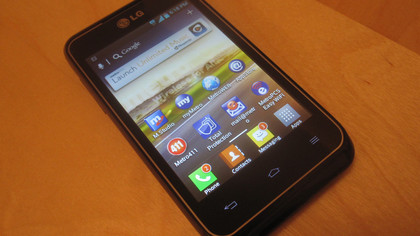
Yet it's hardly a perfect experience. There are some frustrating hardware trade-offs, while some software choices are genuinely confusing.
Hardware and design
The first thing that stands out about the LG Motion 4G is its size: it's tiny - especially for a 4G LTE-enabled device. The belief that any Android device that consumes data at such speeds would necessitate a large, physical body (a notion that has mostly been spread by overzealous and perhaps misinformed Apple iPhone 5 enthusiasts) is clearly not true.
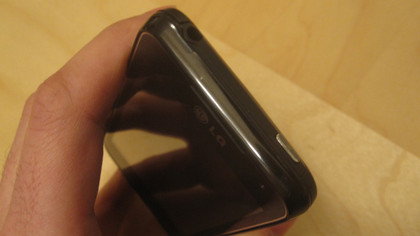
Coming in at 4.36" x 2.39" x 0.46", the Motion rests comfortably in one's palm, but for those with large hands, it might prove to be a bit too small. The device weighs 4.7 ounces, which may seem only a bit more than some devices, but the weight is noticeable in such a small package. The extra heft is due to the device's density. Overall, the feel is sufficiently sturdy, and not cheap, as one would fear with budget handsets.
Looks-wise, the Motion 4G is not going to win it any beauty contests, nor would it even make it past the first round. We wouldn't call it ugly, but the Motion's design is hardly noteworthy. Some physical aspects can be considered utilitarian but that's being rather kind.
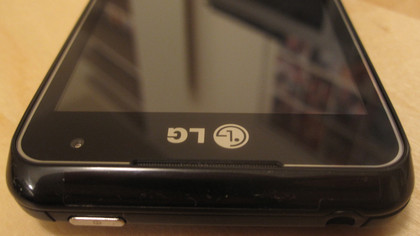
Starting at the top is your standard issue 3.5mm headphone jack and the power/sleep button. The left has your volume rocker buttons, along with the micro USB port for charging and PC connectivity. The right side is totally bare.
The same goes for the bottom, with the exception of a notch that used to pry open the back. Speaking of the back, there you'll find a 5.0 megapixel camera with a flash, along with the speaker grill. The back has a plastic finish, which isn't totally cheap feeling, but is hardly luxurious either. It does allow the Motion 4G to be easily gripped, with no fear of slippage, which is a bonus. The Motion 4G, despite its snug size, is not going anywhere.
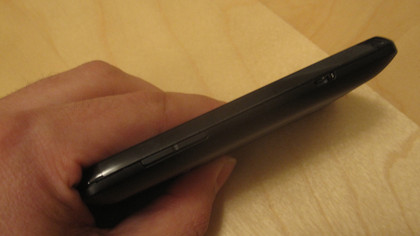
Inside you'll find the removable 1700 mAh LiIon battery, which advertises a 5.4 hours of maximum talk time, plus 290 hours of maximum standby time. You'll also find the micro SD port, to expand the Motion's memory. Since there's only 5.6GB of onboard storage, you'll probably be taking advantage of this.
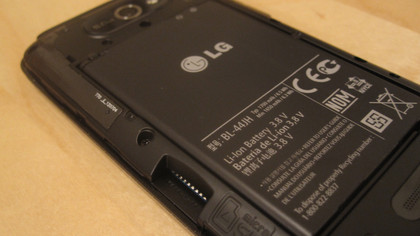
Going even deeper within reveals a 1.2 GHz Qualcomm Snapdragon dual-core, which keeps everything moving along at a great pace. Unfortunately, the 5.6 GB worth internal storage that's available for the user is not that much. As we hinted at, if you decide to get an LG Motion 4G, be sure to get a micoSD card if you wish to enjoy a more than modest allotment of content.
But should you even get an LG Motion? On the front of the device, you'll find a 3.5-inch Gorilla Glass display and the first huge misfire for the Motion. The resolution is extremely low, just 480x320 pixels. Despite the fact that system icons, or even text on web pages, are nice and clear, when it came to video, the Motion dropped the ball.
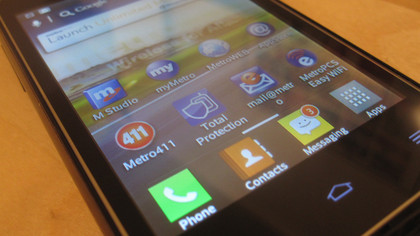
Everything just looks fuzzy and pixelated (and its not due to a poor data connection, it is 4G after all). Colors are muted, making even the basic perks of a smart phone, like watching a trailer on YouTube, rather poorly handled by the LG Motion. It really is that bad and quite the downer, especially considering how good most other things are.
Also worth noting is how those with big hands might have a hard time interacting with the phone; the virtual keyboard seems extremely cramped, even though the one on an iPhone 4S is not much bigger.
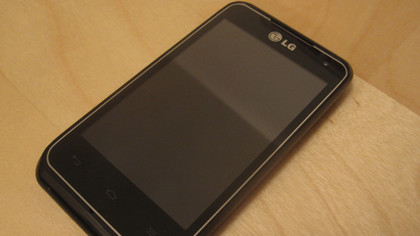
Below the screen you'll find the three display buttons, the new standard assortment with Android 4.0: Ice Cream Sandwich and on. They light up when the rest of the display is on, and go out when not in use. You'll also find a front-facing VGA camera.
